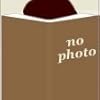Abalexan
asked
Sherwood Smith:
I wanted to ask a question RE your historical fiction pieces. I'm currently on a second rereading of Rondo Allegro. I always feel conflicted between how much to be historically accurate and how much license to take. I was interested in hearing your thoughts and how you navigate this. How much research do you do before you feel comfortable to start writing and what are your go to sources (novels, primary, etc.)?
Sherwood Smith
I think every writer has to consider why they're writing their piece, which (at least in my mind, and acknowledging that there are as many writing processes as there are writers) will dictate how much research to do. In my situation, I try to find a balance between life as it ought to be (as Jane Austen did) and life as it was. So some things are going to be finessed: I'm not going to have my characters filing the enamel off their teeth, or some of the other horrific "medical" practices of the day. I'm not going to go into detail about the stench of all cities and what was clogging the rivers. There are other novelists whose aim is to depict those aspects of life accurately, as their novel no doubt is intended for something beside a romantic escape.
But I've been reading about that period for close to fifty years. I've read hundreds of diaries, compendia of letters. I have an entire bookcase containing just those--four shelves worth. That's besides the biographies and histories I have. So the basic knowledge is there.
When I wrote Rondo, I had period maps of Paris, and travelers' accounts of what Paris was like during the various states of the revolution. I used a book that was specifically about female playwrights and opera writers who flourished during a ten year period during the Revolution, before Napoleon began shutting them down. I used travelers' journals for the trip down to Spain, and I've got another full bookcase about the Royal Navy, various ship battles, and how to navigate and run a naval vessel. (I got interested in that after reading Patrick O'Brian, so I began tracking down his main sources.)
I do read period novels, but I stay away from using as a source any modern works, including Georgette Heyer, whose version of Regency England is idiosyncratic and specific. She, too, was writing the kind of story she wanted to tell, and was a phenomenal researcher, but she didn't have the resources we have now and got some things wrong, or finessed some things for her own artistic purposes. Like using a great deal of Pierce Egan's slang, and using the word ton in place of beau monde years before it was used that way.
I've got about fifteen very specific period works on my desk now to read before I start writing another one.
But I've been reading about that period for close to fifty years. I've read hundreds of diaries, compendia of letters. I have an entire bookcase containing just those--four shelves worth. That's besides the biographies and histories I have. So the basic knowledge is there.
When I wrote Rondo, I had period maps of Paris, and travelers' accounts of what Paris was like during the various states of the revolution. I used a book that was specifically about female playwrights and opera writers who flourished during a ten year period during the Revolution, before Napoleon began shutting them down. I used travelers' journals for the trip down to Spain, and I've got another full bookcase about the Royal Navy, various ship battles, and how to navigate and run a naval vessel. (I got interested in that after reading Patrick O'Brian, so I began tracking down his main sources.)
I do read period novels, but I stay away from using as a source any modern works, including Georgette Heyer, whose version of Regency England is idiosyncratic and specific. She, too, was writing the kind of story she wanted to tell, and was a phenomenal researcher, but she didn't have the resources we have now and got some things wrong, or finessed some things for her own artistic purposes. Like using a great deal of Pierce Egan's slang, and using the word ton in place of beau monde years before it was used that way.
I've got about fifteen very specific period works on my desk now to read before I start writing another one.
More Answered Questions
Victoria Gaile
asked
Sherwood Smith:
Hi! I was interested in the culture portrayed in the opening of Inda, with noble houses trading treaty-brides who grew up together with their betrothed. But the books quickly depart from this pattern, & never really return to it (because events warp it, so we only see damaged versions of it). Have you any stories that occur entirely within this culture? I'd like to see how it works when it's working. :)
About Goodreads Q&A
Ask and answer questions about books!
You can pose questions to the Goodreads community with Reader Q&A, or ask your favorite author a question with Ask the Author.
See Featured Authors Answering Questions
Learn more





